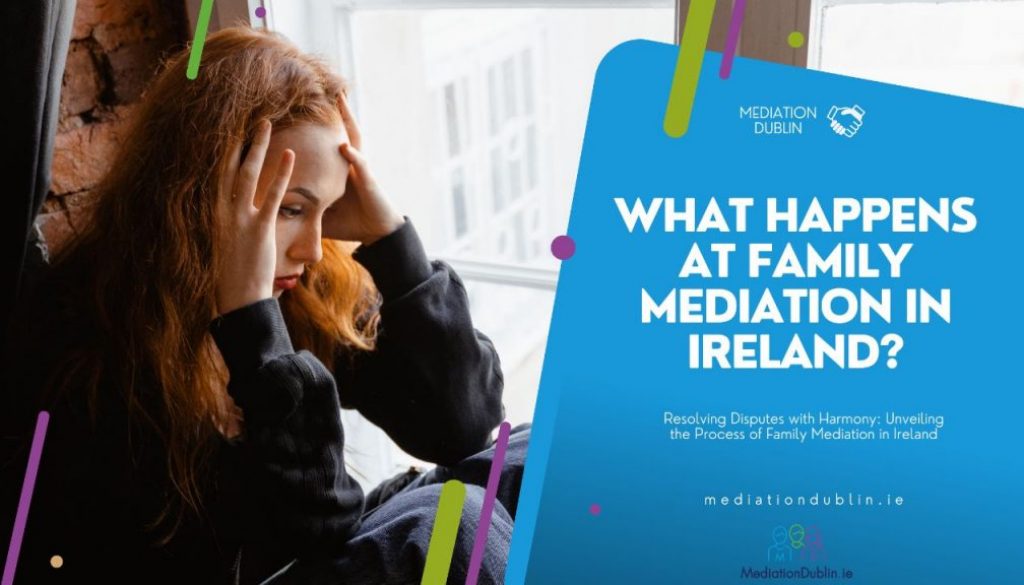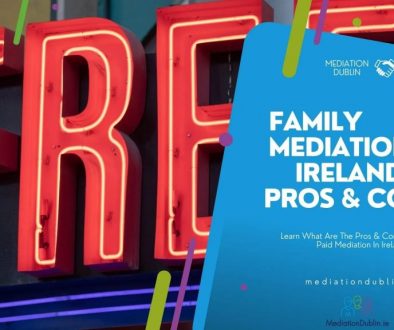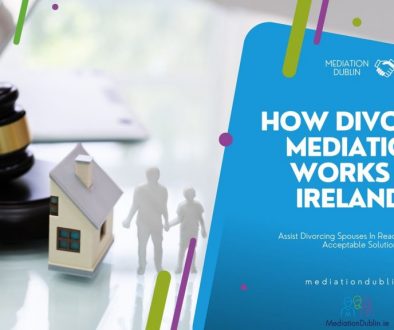What Happens at Family Mediation in Ireland?

Family mediation is a voluntary practice that assists parties in resolving disagreements and conflicts peacefully and constructively. In Ireland, family mediation has grown in popularity as an alternative to litigation, allowing the parties to mediation collaborate towards mutually beneficial results. This article will look at what happens during family mediation in Ireland, including the role of the Mediator, the preparation required, the mediation process itself and the advantages it provides to families.
Understanding Family Mediation:
Family mediation is a confidential and impartial process where a trained Mediator assists parties in finding mutually acceptable solutions to their disputes. Family mediation addresses a wide variety of issues, such as Legal Separation or Divorce, child custody and access arrangements, financial arrangements, co-parenting agreements and family communication difficulties. It enables the parties to talk honestly, voice their problems and work towards realistic solutions while keeping the dynamics of their particular family in mind.
The Role of the Mediator:
“The Mediator’s role is to facilitate communication, encourage cooperation and guide the parties towards reaching their own agreements.” – Mediators’ Institute of Ireland
A Mediator is a neutral third person who assists in the facilitation of productive conversation among family members. They are highly trained specialists with knowledge of dispute resolution and family dynamics. The Mediator does not take sides or make choices on behalf of the family but rather helps the members find shared goals, explore possibilities, and promote understanding and empathy.
Preparing for Family Mediation:
Each party may meet with the Mediator separately before a joint mediation session to discuss their issues, objectives and expectations. This enables the Mediator to collect pertinent information and guarantee a thorough knowledge of the problems at hand. Gathering required documentation, such as financial accounts or arrangements regarding children and being open to explore multiple possibilities are all part of preparing for mediation.
The Family Mediation Process:
Introduction:
The Mediator explains the mediation process and establishes ground rules. The parties will sign an Agreement to Mediate before discussions begin.
Opening statements:
Each participant is given an opportunity to express their perspective on the issues and their desired outcomes.
Joint discussion:
The Mediator facilitates a structured dialogue, allowing each party to communicate and address the issues constructively.
Identifying common ground:
The Mediator helps identify areas of agreement and common interests among the participants.
Exploring options:
The Mediator encourages brainstorming and exploring creative solutions that meet the needs of all parties involved.
Negotiation:
The participants engage in a negotiation process facilitated by the Mediator to reach mutually acceptable agreements.
Finalising agreements:
Once agreements are reached, the Mediator assists in documenting the terms in a clear and comprehensive manner. This document is called a Mediation Settlement and is by default a legally binding agreement. For parties who do not wish to have a legally binding agreement a Memorandum of Understanding would be drafted.
Addressing Family Issues:
Family mediation provides a secure and controlled atmosphere for families to properly discuss their difficulties. It improves communication, restores trust and gives individuals a voice in decisions that directly affect their lives. Mediation emphasises a cooperative approach and encourages parents to focus on their children’s well-being.
Benefits of Family Mediation:
“Research shows that families who engage in mediation are more likely to have longer-lasting agreements and better post-separation relationships.” – Family Mediation Service, Ireland
- Confidentiality: Mediation is a private process, ensuring that personal matters remain confidential and not subject to public scrutiny.
- Empowerment: Participants actively contribute to decision-making and have a sense of control over the outcome.
- Cost-effective: Compared to litigation, family mediation is generally more affordable and less time-consuming.
- Preserving relationships: Mediation aims to maintain or improve relationships, particularly in cases involving ongoing co-parenting responsibilities.
Conclusion:
Family mediation is a constructive and non-adversarial method to conflict resolution for families in Ireland. Families may resolve their concerns in a confidential and supportive setting by working with a qualified Mediator, ultimately reaching mutually beneficial solutions. The technique allows individuals to take responsibility of their own results while also encouraging healthy communication and understanding within the family.
Thank you for reading, Rachael, MediationDublin.ie


